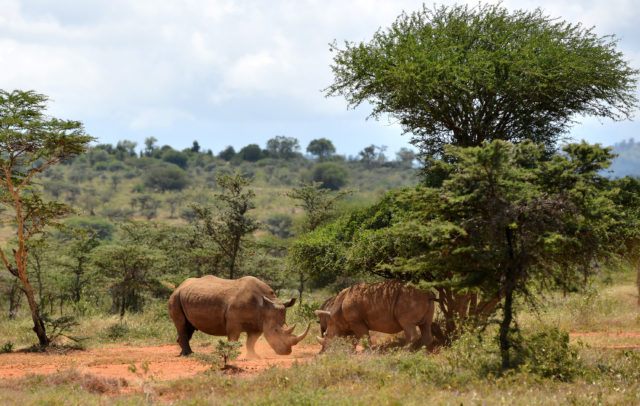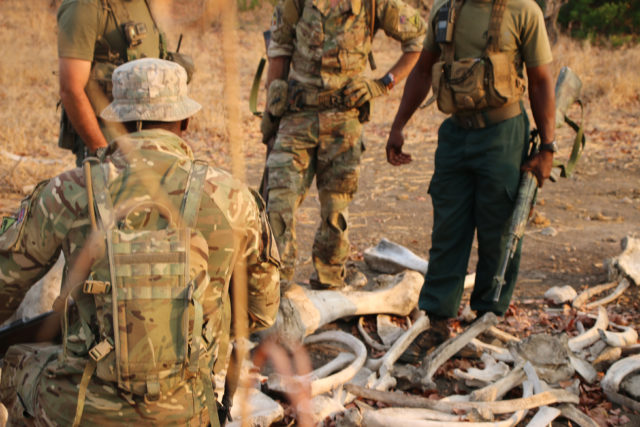
British soldiers will be deployed to Africa to boost efforts to stop the “sickening” and illegal hunting of elephants, rhinos, lions and other animals, the Defence Secretary has said.
Gavin Williamson announced the expansion of the UK’s counter-poaching training to two parks in Malawi, doubling the number of rangers mentored by British soldiers to 120.
It is the latest step in British efforts to stop the illegal wildlife trade and protect the “magnificent” animals from extinction.
 The parks are home to rhinos, elephants and other animals (Ministry of Defence/PA)
The parks are home to rhinos, elephants and other animals (Ministry of Defence/PA)
Mr Williamson said: “Poaching is a horrific and cruel trade that is putting the very existence of this planet’s most majestic wildlife in jeopardy.
“Our brave Armed Forces are the best in the world and are playing their part in putting an end to this sickening and illegal industry, to protect these magnificent mammals.
“By providing training and mentoring to the park rangers, they will form a skilled network to ensure that the world’s precious species are here for generations to come.”
The deployments to Nkhotakota and Majete Wildlife Reserves will begin in May, following a successful pilot scheme in Liwonde National Park alongside the conservation non-profit African Parks.
The troops will train rangers in tracking, infantry, bushcraft and information analysis skills.
 The British Army will train park rangers in tracking and infantry (Ministry of Defence/PA)
The British Army will train park rangers in tracking and infantry (Ministry of Defence/PA)
The move is part of a long-term goal of training rangers in Malawi to effectively police their parks and respond to poaching.
Liwonde Park Manager Craig Reid said: “The MoD deployment to Liwonde in 2017 was very beneficial to the African Parks effort in securing the integrity of this park which was once overrun with poaching.
“The soldiers helped mentor the rangers as part of the long-term project aimed at ensuring a sustainable law enforcement effort. We are very appreciative of the ongoing support rendered to our team on the ground.”
Brighton Kumchedwa, director of National Parks and Wildlife in Malawi, said: “We are really pleased that the British Army will be returning to Malawi to work in partnership with the Malawian authorities and African Parks on counter-poaching activities.
“This will build on the success of their previous deployment and ensure that life becomes increasingly difficult for those intent on wildlife crime in Malawi.”


Comments: Our rules
We want our comments to be a lively and valuable part of our community - a place where readers can debate and engage with the most important local issues. The ability to comment on our stories is a privilege, not a right, however, and that privilege may be withdrawn if it is abused or misused.
Please report any comments that break our rules.
Read the rules here